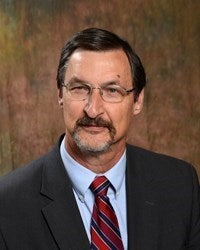Troup County schools superintendent takes on new roles
Published 12:00 am Thursday, August 20, 2015

LaGRANGE — State School Superintendent Richard Woods on Aug. 10 selected 19 local superintendents to serve on his newly created Superintendent’s Advisory Council.
One of those members tapped as an advisor was Cole Pugh, Troup County school system superintendent.
“It is an honor to be named to the State Superintendent’s Advisory Council,” said Pugh. “I will be working with colleagues across Georgia, bringing concerns of Troup County to the forefront and continuing to provide solutions that positively impact student achievement at the local and state level.”
The purpose of the advisory council is for each member to provide feedback on the local impact of state-level education decisions. This can include the amount of student testing, how budgetary practices impact Troup County and the use of evaluation instruments for teachers and administrators.
“My parent, student and teacher advisory councils have been invaluable in my decision-making,” said Woods. “There was no central way to gather the opinions of local superintendents, who frequently deal with the impact of state policies. This group is a cross-section of the state of Georgia and will add another facet to our efforts to know what’s happening on the ground level of education, and make decisions accordingly.”
Advisory council members are composed of individuals from urban, suburban and rural districts throughout Georgia. They will meet regularly throughout the year to discuss issues at a local level.
Pugh also has been tapped as senior lead auditor for Curriculum Management Solutions Inc., a national curriculum auditing corporation.
In this position, he will lead teams of educators to conduct examinations of school systems. After the examination, the team presents findings and recommendations for improvement. This is a process for school systems seeking improvement in the design and delivery of curriculum that ultimately pushes student progress and achievement.
Pugh has participated in 17 curriculum audits throughout the United States, including school districts in Texas, California, Ohio, Maryland, Oregon, Kansas and North Carolina. The systems audited ranged in size from a few hundred students to 95,000.
“It is an honor to be named senior lead auditor. I believe a good curriculum can improve student achievement exponentially,” Pugh said. “When you have everyone working across the district, teaching the same curriculum, students will have a better chance at success.”
Some of the areas analyzed by curriculum audit teams are:
• Policy and administrative regulation to direct system operations.
• Planning at the system, campus, and departmental levels.
• Organizational structure (organizational chart and job descriptions).
• Quality of the written curriculum.
• Curriculum management planning.
• Monitoring of curriculum delivery.
• Professional development.
• Equality and equity issues.
• Assessment trends in student data.
• Budgeting.
• Facility planning.
This past summer, 150 Troup County School System teachers and administrators participated in a two-week curriculum and assessment writing project. In addition, 130 teachers and administrators revised 60 student learning objectives during a five-day curriculum companion project. The summer work was an effort to enrich curriculum and promote deep alignment.
In addition to senior lead auditor, Pugh is also a certified curriculum management audit trainer. Upon arriving in Troup County in 2011, he led the administrative team in seven days of training.
During that time, participants analyzed the Troup County School System against the audit standards for the areas listed above. The results of that analysis are a part of the system comprehensive improvement plan that is slated to be updated this year.
Pugh earned a doctorate of education in administration and supervision from the University of Houston in 1988. He has published several papers on curriculum management and budgeting, and has been a presenter at more than two dozen regional, state and national conferences.




